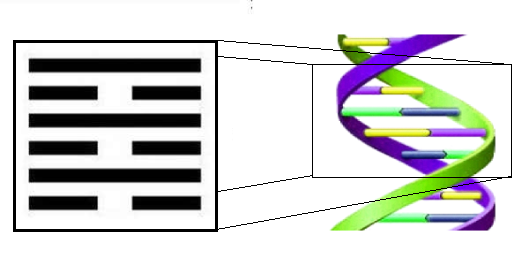i never thought religion and science contradicted each other. I also never felt they are cooperative. Imo, they're completely unrelated. Science is concerned with matter and physical being. Religion is concerned with spirit and metaphysics. Why use religion in the context of matter and science? It doesn't make sense. Why use science to prove the spiritual?
Science is concrete. Spirituality is abstract. Mixing the two is like using measuring units of volume for time. It's like asking "How many gallons is in a year?" No. It's apples and oranges.
I don't even take my mythology as fact or historical. Religious Lore, more often than not, is a HORRIBLE replacement for history books.
To not seem bias, I'm going to be scientifically critical of my own Heathen Lore.
One myth says that the world was created when Muspelheim, fire world, and Niflheim, mist world, gave elements to create Ymir, the first giant of immense size. From Ymir's armpits and feet he gave birth to spirits called Wights and others called Jotnar, or Giants. Buri, the first God, was born from the North in Niflheim, begot Buri who mated with a giantess Bestla. They parented the gods Vili, Ve and my favorite, Odin. The brothers did battle with Ymir and used his flesh to create the land, bones the rocks, blood the seas, brains the clouds etc.
Odin took the earth and Frigg, both probably pure giantesses, as his wives and fathered the gods of Asgard, a mighty fortress they built. Odin would create humanity from driftwood and ashwood with Vili and Ve.
This story scientifically is crap. It has no real value in a discussion on natural history. The only value it can possibly have is as a poetic metaphor.
Ymir's death is similar to some shamanic initiation rites, where the initiate would journey in a trance and visualize or hallucinate the spirits to take apart the body and reassemble it in a way that the spirits can use it.
Fire and Ice just emphasize the sanctity of elements and nature. Heathenry stresses ancestralism and the elements are mythologically our distant kin. Accidentally science says the same thing in its theories.
Giants, gods and wights in lore are often in human or animal form. Is there really a one eyed, Viking chieftain atop Asgard in Valhalla who rides on an eight legged horse and helped along cosmology to how it is today? No. That's dumb. Anyone who looks at that and take it literally is stupid.
The world is represented by a tree called "Yggdrasil" meaning "vehicle of the terrible one". Yggr, "terrible one", is a name for Odin. Sleipnir is his eight legged horse, whose name means "one who slides". He's Odin's ride or Vehicle. This could reveal the worldview, perceiving Midgard in the center and the eight others in different branching directions around it.
We could keep going on the abstract value of these myths. Why try to look for scientific value? Especially when there's obviously no science in it at all.
Genesis Creationism is another example. Did Yahweh really create the world in six days? Probably not. Did he have influence? In that worldview, it's a reasonable thought.
No matter where you look, it's irrational to apply spirit to study of matter or nature.
Science is concrete. Spirituality is abstract. Mixing the two is like using measuring units of volume for time. It's like asking "How many gallons is in a year?" No. It's apples and oranges.
I don't even take my mythology as fact or historical. Religious Lore, more often than not, is a HORRIBLE replacement for history books.
To not seem bias, I'm going to be scientifically critical of my own Heathen Lore.
One myth says that the world was created when Muspelheim, fire world, and Niflheim, mist world, gave elements to create Ymir, the first giant of immense size. From Ymir's armpits and feet he gave birth to spirits called Wights and others called Jotnar, or Giants. Buri, the first God, was born from the North in Niflheim, begot Buri who mated with a giantess Bestla. They parented the gods Vili, Ve and my favorite, Odin. The brothers did battle with Ymir and used his flesh to create the land, bones the rocks, blood the seas, brains the clouds etc.
Odin took the earth and Frigg, both probably pure giantesses, as his wives and fathered the gods of Asgard, a mighty fortress they built. Odin would create humanity from driftwood and ashwood with Vili and Ve.
This story scientifically is crap. It has no real value in a discussion on natural history. The only value it can possibly have is as a poetic metaphor.
Ymir's death is similar to some shamanic initiation rites, where the initiate would journey in a trance and visualize or hallucinate the spirits to take apart the body and reassemble it in a way that the spirits can use it.
Fire and Ice just emphasize the sanctity of elements and nature. Heathenry stresses ancestralism and the elements are mythologically our distant kin. Accidentally science says the same thing in its theories.
Giants, gods and wights in lore are often in human or animal form. Is there really a one eyed, Viking chieftain atop Asgard in Valhalla who rides on an eight legged horse and helped along cosmology to how it is today? No. That's dumb. Anyone who looks at that and take it literally is stupid.
The world is represented by a tree called "Yggdrasil" meaning "vehicle of the terrible one". Yggr, "terrible one", is a name for Odin. Sleipnir is his eight legged horse, whose name means "one who slides". He's Odin's ride or Vehicle. This could reveal the worldview, perceiving Midgard in the center and the eight others in different branching directions around it.
We could keep going on the abstract value of these myths. Why try to look for scientific value? Especially when there's obviously no science in it at all.
Genesis Creationism is another example. Did Yahweh really create the world in six days? Probably not. Did he have influence? In that worldview, it's a reasonable thought.
No matter where you look, it's irrational to apply spirit to study of matter or nature.


